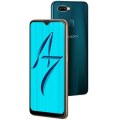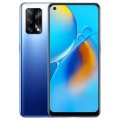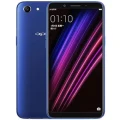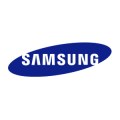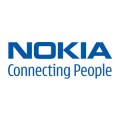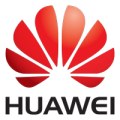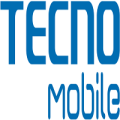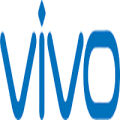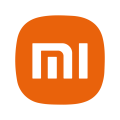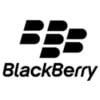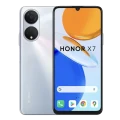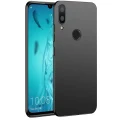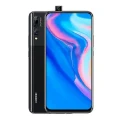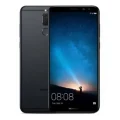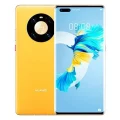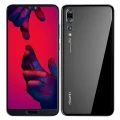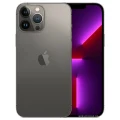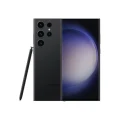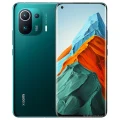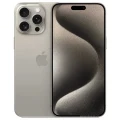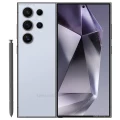- Awesome page
- Latest Mobile
- Smartphones
- Oppo F17 Pro
Oppo F17 Pro
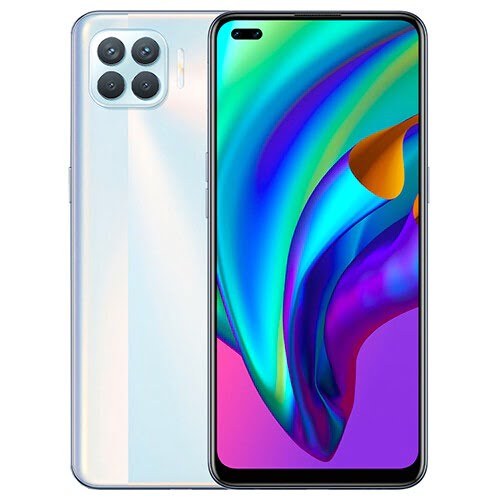

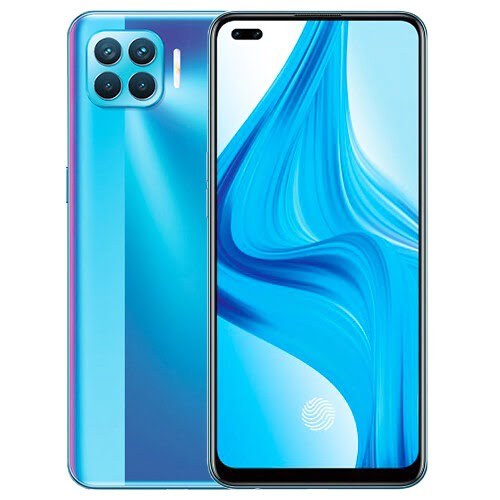
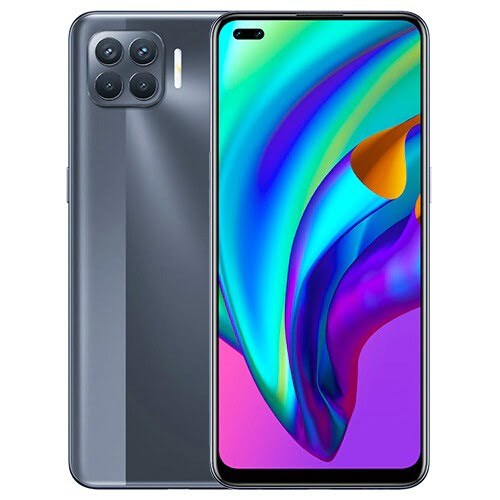

Oppo F17 Pro Price in Bangladesh
August 20, 2020, saw the announcement of F17 Pro in Bangladesh. The price of 25,990 Taka in Bangladesh in 2024 is a pro. In 2024, we are Bangladesh’s most alluring mobile news publisher. We are the newest website in our nation to provide mobile news in Bangladeshi dialect. Below are the F17 Pro smartphones’ complete specifications. Let’s investigate it.
Specifications
General
| Model | Oppo F17 Pro |
| Announced | 02-09-2020 |
| Released | 07-09-2020 |
| Status | Available |
| Official price | 8GB 128GB ৳25,990 |
| Unofficial price | 8GB 128GB 24,000 |
Design
| Dimensions | 160.1 x 73.8 x 7.5 mm (6.30 x 2.91 x 0.30 in) |
| Weight | 164 g (5.78 oz) |
| Colors |
Magic Blue, Matte Black, Metallic White |
Network
| Technology | GSM / HSPA / LTE |
| 2G Network |
GSM 850 / 900 / 1800 / 1900 - SIM 1 & SIM 2 |
| 3G Network |
HSDPA 850 / 900 / 2100 |
| 4G Network |
1, 3, 5, 8, 38, 40, 41 |
| GPRS <strong>GPRS</strong> (General Packet Radio Service) is a packet oriented mobile data service on the 2G and 3G cellular communication system's global system for mobile communications (GSM), Generally, GPRS is used for the purpose of wireless data transfer, such as sharing pictures and videos or browsing the Internet via a mobile phone connection. | |
| EDGE <strong>EDGE</strong> (Enhanced Data GSM Environment) is a wireless network technology generally considered the next step in the 2G network offers data transfer rates up to four times faster than ordinary GSM networks, Generally, EDGE is used for the purpose of wireless data transfer, such as sharing pictures and videos or browsing the Internet via a mobile phone connection. | |
| Speed | HSPA 42.2/11.5 Mbps, LTE-A |
Display
| Display Type <strong>Display Technology => </strong> A number of display technologies and types used in mobile phones => TFT (Thin Film Transistor), IPS (In-Place Switching), OLED (Organic Light Emitting Diode), AMOLED (Active-Matrix Organic Light-Emitting Diode), Super AMOLED (an even advanced version of AMOLED), Resistive Touchscreen (Resistive touchscreens contain two layer of conductive material with a very small gap between them which acts as a resistance), Capacitive Touchsceen (Capacitive touchscreen technology consists of a layer of glass coated with a transparent conductor) | Super AMOLED capacitive touchscreen, 16M colors |
| Size | 6.43 inches, 100.3 cm2 (~84.9% screen-to-body ratio) |
| Resolution | 1080 x 2400 pixels, 20:9 ratio (~408 ppi density) |
| Features | 430 nits typ. brightness (advertised) |
Camera
Main camera
| Camera Setup | Quad |
| Primary <strong>Camera</strong> is able to capture photographs and usually videos, The most important characteristics of a camera are the resolution (measured in megapixels), lens focus type (fixed or automatic), higher megapixel cameras are known to capture higher quality photos, but not always a good measurement of the photos quality. |
48 MP, f/1.8, 26mm (wide), 1/2.0&amp;quot;, 0.8µm, PDAF 8 MP, f/2.2, 119˚ (ultrawide), 1/4.0&amp;quot;, 1.12µm 2 MP, f/2.4, (macro) 2 MP, f/2.4, (depth) |
| Features |
LED flash, HDR, panoram |
| Video | 4K@30fps, 1080p@30fps |
Selfie camera
| Camera Setup | Dual |
| Primary <strong>Camera</strong> is able to capture photographs and usually videos, The most important characteristics of a camera are the resolution (measured in megapixels), lens focus type (fixed or automatic), higher megapixel cameras are known to capture higher quality photos, but not always a good measurement of the photos quality. |
16 MP, f/2.4, (wide), 1/3&amp;quot; 2 MP, f/2.4, (depth) |
| Features | HDR |
| Video | 1080p@30fps |
Hardware
| Chipset <strong>Chipset</strong> is a group of integrated circuits designed to perform one or a more dedicated functions, often with real time computing constraints, Popular smartphones are equipped with more advanced embedded chipsets that can do many different tasks depending on their programming. | Mediatek Helio P95 (12 nm) |
| CPU <strong>CPU</strong> (Central Processing Unit) mostly known as processors, CPU processes instructions in order to carry out certain functions that make your device operate properly. Processors are often described as the brain of computers, smartphones and tablets, Smartphones and tablets rely on processors to carry out their every task, Processors are an incredibly important factor in selecting any type of computing device, including your smartphone. | Octa-core (2x2.2 GHz Cortex-A75 & 6x2.0 GHz Cortex-A55) |
| GPU <strong>GPU</strong> (Graphics Processing Unit) is a single-chip processor designed to rapidly manipulate and alter memory to accelerate the creation of images in a frame buffer intended for output to a display, This includes things such as lighting effects, object transformations, and 3D motion. | PowerVR GM9446 |
| RAM (Memory) <strong>RAM</strong> (Random Access Memory) is a type of computer memory that can be accessed randomly, any byte of memory can be accessed without touching the preceding bytes that allows information to be stored and accessed quickly from random locations. RAM is the most common type of memory found in computer systems, smartphones, tablets and other electronic devices. | 8 GB |
| Internal Storage <strong>Internal Storage</strong> is a data storage space (flash memory) mostly used in smartphones, tablets and other electronic devices where operating system, apps, music, photos, videos, files and other user data Is stored. | 128 GB UFS 2.1 |
| Sensors <strong>Sensors</strong> are electronic components that detects and responds to some type of input from the physical environment. The specific input could be light, heat, motion, moisture, pressure and location, The output is generally a signal that is converted to use in computing systems, a location sensor, such as a GPS receiver is able to detect current location of your electronic device. |
Fingerprint (under display, optical), accelerometer, gyro, proximity, compass |
Connectivity
| Bluetooth <strong>Bluetooth</strong> is a wireless communications technology for exchanging data between mobile phones, headsets, computers and other network devices over short distances without wires, Bluetooth technology was primarily designed to support simple wireless networking of personal consumer devices. | 5.1, A2DP, LE, aptX HD |
| Infrared <strong>Infrared</strong> connectivity is an old wireless technology used to connect two electronic devices. It uses a beam of infrared light to transmit information and so requires direct line of sight and operates only at close range. | |
| USB | 2.0, Type-C 1.0 reversible connector, USB On-The-Go |
| GPS <strong>GPS</strong> The Global Positioning System is a satellite-based radio navigation system, GPS permits users to determine their position, velocity and the time 24 hours a day, in all weather, anywhere in the world, In order to locate your position, your device or GPS receiver must have a clear view of the sky. | Yes, with A-GPS, GLONASS, GALILEO, BDS, QZSS |
| NFC <strong>NFC</strong> (Near field communication) is a set of standards for smartphones and similar devices to establish peer-to-peer radio communications with each other by touching them together or bringing them into proximity, usually no more than a few inches. |
Battery
| Battery Type <strong>Battery Type => </strong> Cell phones run on various kinds of batteries depending on the manufacturer, phone size or shape and features. There are basically four types of cell phone batteries => Lithium Polymer, Lithium Ion, Nickel Metal Hydride and Nickel Cadmium. | Non-Removable Li-Po |
| Capacity <strong>Battery Capacity</strong> is a measure (typically in Amp-hr) of the charge stored by the battery, and is determined by the mass of active material contained in the battery. The battery capacity represents the maximum amount of energy that can be extracted from the battery under certain conditions. | 4015 mAh |
| Charging Charging | Fast charging 30W, 50% in 30 min, 100% in 53 min (advertised) VOOC 4.0 |
Oppo F17 Pro Review
Oppo has consistently pushed the boundaries of smartphone innovation, and the Oppo F17 Pro is no exception. This device has been designed to offer a premium experience without breaking the bank. In this detailed review, we will explore its key features, design, performance, camera capabilities, battery life, and overall user experience.
Unboxing and First Impressions
Opening the box of the Oppo F17 Pro is an exciting experience for any tech enthusiast. The package includes:
- The Oppo F17 Pro handset
- A 30W VOOC Flash Charger
- USB-C charging cable
- Earphones
- Protective case
- SIM ejector tool
- Documentation and warranty card
Our initial reaction to the Oppo F17 Pro was positive. The phone feels light, yet solid, and the sleek design immediately stands out.
Design and Build Quality
The Oppo F17 Pro features a slim profile at just 7.48mm thick and weighs only 164 grams. The device boasts a glossy back with a matte finish that not only looks stunning but also minimizes fingerprint smudges. The quad-camera module is neatly arranged on the top left corner, giving the phone a sophisticated look.
Performance Assessment
Under the hood, the Oppo F17 Pro is powered by the MediaTek Helio P95 chipset, paired with 8GB of RAM and 128GB of internal storage. This combination ensures smooth performance for everyday tasks such as browsing, streaming, and multitasking. Gaming performance is also commendable, with popular titles like PUBG Mobile and Asphalt 9 running without noticeable lag. However, it’s not the best in the market if you are a hardcore gamer.
Camera Capabilities
The Oppo F17 Pro sports a quad-camera setup consisting of:
- 48MP primary sensor
- 8MP ultra-wide-angle lens
- 2MP depth sensor
- 2MP macro lens
The camera performs admirably in various lighting conditions, capturing vibrant and detailed photos. The ultra-wide-angle lens is perfect for landscape shots, while the macro lens allows for close-up photography with fine details. The front features a dual-camera system with a 16MP primary sensor and a 2MP depth sensor, ideal for selfies and video calls.
Battery Life and Charging Speed
Equipped with a 4,015mAh battery, the Oppo F17 Pro provides all-day battery life under moderate usage. The highlight here is the 30W VOOC Flash Charging, which can charge the phone from 0% to 100% in just about 53 minutes. This fast-charging capability ensures that you spend less time tethered to a power outlet and more time using your phone.
User Experience and Software Overview
Running on ColorOS 7.2 based on Android 10, the Oppo F17 Pro offers a clean and intuitive user interface. The software is loaded with features like customizable icons, dark mode, and intelligent assistant capabilities. The device also supports facial recognition and an in-display fingerprint sensor for added security.
Final Verdict
Is the Oppo F17 Pro worth it for tech enthusiasts and smartphone users? The answer is a resounding yes. The Oppo F17 Pro offers a compelling package with its sleek design, decent performance, versatile camera setup, and impressive fast-charging capabilities. While it may not be the best choice for hardcore gamers, it excels in almost every other department, making it a great option for anyone looking to upgrade their smartphone.
Conclusion and Recommendations
In conclusion, the Oppo F17 Pro is a well-rounded smartphone that caters to the needs of tech enthusiasts and everyday users alike. Its balance of style, performance, and functionality makes it a standout in its price range. If you are in the market for a new smartphone that offers great value for money, the Oppo F17 Pro should definitely be on your list.
Ready to upgrade? Check out the Oppo F17 Pro today and experience its impressive features firsthand.
